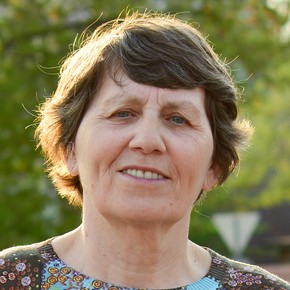Biography
Raisa Usanova is one of the elderly residents of Vladivostok, who were accused of extremism only because of their religion.
Raisa was born in 1947 in the village of Kuznetsovo (Chita Region) in a large family—she had three brothers and a sister. After school, Raisa went to study in Vladivostok and subsequently stayed there to live. There she met her future husband, together they raised two daughters.
By profession, Raisa is a railway transport technician. For 25 years she worked as a trolley bus driver. Now she is retired.
In 2000, having lost her mother, brothers and sister, Raisa began to ask questions: why do people die and is there hope for the dead? In the Bible, she found an answer that seemed logical and convincing to her. However, Raisa did not expect that the study of the Bible would lead her to the dock.
Criminal prosecution worsened elderly woman’s chronic diseases. But despite the unfair persecution for her faith, she tries to maintain a positive attitude.
Case History
In April 2018, the Federal Security Service of Russia for the Primorye Territory opened a criminal case against Jehovah’s Witnesses from Vladivostok. Believers were searched. Valentyn Osadchuk spent 9 months in pre-trial detention and 77 days under house arrest. In April 2019, he was accused of organizing the activities of an extremist organization, and 6 elderly women — Lyubov Galaktionova, Nailya Kogai, Nina Purga, Nadezhda Anoykina, Raisa Usanova and Yelena Zayshchuk — were accused of participating in it. Soon the case was received by the Leninsky District Court, but a month later the judge returned it to the prosecutor. This decision was upheld twice by the appellate court. Since January 2021, the case has been re-examined in the same court by Maksim Anufriev. With regard to Zayshchuk, the case was suspended due to her advanced age and state of health. In May 2022, the prosecutor requested a sentence of 6.5 years in prison for Valentin Osadchuk, and a 5-year suspended sentence for women. In June, the court sentenced the believers to suspended sentences ranging from 2 to 6 years. In September 2022, the appeal upheld the verdict.
